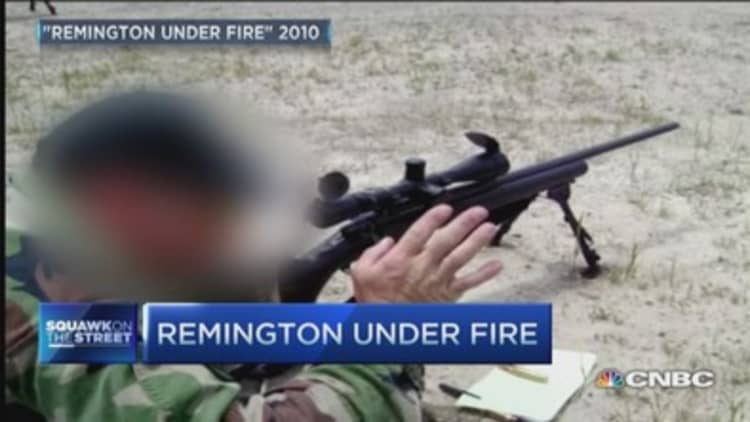The Montana man who raised some of the most serious allegations about Remington Arms and its iconic Model 700 rifle cannot sue the company over its efforts to discredit him, a federal appeals court has ruled.
Richard Barber, whose 9-year-old son was killed when a Model 700 fired accidentally, was a central figure in the 2010 documentary "Remington Under Fire: A CNBC Investigation." The program explored allegations that for decades, the company covered up a design defect that caused the guns to fire without the trigger being pulled, resulting in dozens of deaths and serious injuries.
In December, the company tentatively agreed in a class action settlement to replace nearly 8 million triggers on the guns in question. Remington insists the guns are safe and free of defects, but says it settled the lawsuit to put the matter behind it.
Read MoreCritic says Remington still hiding the truth about its rifles
After the 2010 CNBC broadcast, Remington claimed in a lengthy online response that the Barber rifle "was heavily rusted" and "had been modified in multiple ways." However, experts hired by Barber and Remington following the the boy's death found no rust on the trigger mechanism and no adjustments that would have made the gun more likely to fire.

Barber sued the company, alleging defamation, but a lower court ruled he had released the gun maker from further claims when he settled a wrongful death settlement in 2002. On Friday, a three-judge panel of the Ninth U.S. Circuit Court of Appeals agreed, noting that Remington's comments in 2010 were "substantively identical" to statements it made before the 2002 settlement.
"That the Barbers attempt to continue the litigation of released claims is shown by their statement that they seek a judicial determination of 'who is telling the truth, and who is not' about Remington's product," the panel wrote. The three-page opinion does not address the substance of Barber's claims about the alleged defect.
In a statement to CNBC, Barber said his efforts to alert the public will continue.
"We may not have had our day in court, but I am undeterred from accomplishing the original goal of the Barber litigation," he wrote. "The facts surrounding (who) told the truth and who lied to the public will eventually be known."
An attorney for Remington said the company had no comment.


